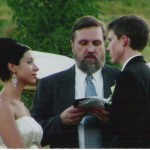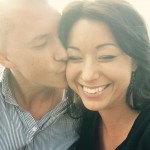A friend asked for my thoughts on the post Who Knew Horses Were Theologians, so here they are:
I had to read through her post several times. I have a fair amount of experience with horses, but the metaphor doesn’t work here and only serves as a confusing distraction from the point. When you are writing to an unlimited audience, it shouldn’t require an unusual familiarity with the subject matter to understand what is being said. I have to ask myself why she didn’t just up say what she wanted to say? It is possible she struggles with clarity in communication? I could certainly sympathize with that.
The part near the end where she says, ” But don’t assume that you Know Exactly What that person NEEDS. Because trust me. You don’t. You aren’t them.” is really quite revealing as to her point and also reflects the state of her heart. This idea that you can’t understand anything you haven’t personally experienced is a fallacy. You don’t have to be a prostitute to understand that being one is a destructive and tragic vocation that women need to be rescued from. You don’t have to be a murderer to know that it is a sin to murder. And you don’t need to know WHY someone is happy to see that they ARE happy. God gave us brains and the Bible. The Bible offers an answer for every situation and our brains have the ability to reason through and apply them. This in of itself could undermine her whole premise and the fact that a Christian woman missed that truth is concerning.
I don’t know her personally, which may be a hinderance or an advantage as I try to understand what she said. I don’t like impugn motive, but when someone releases a public statement, that is the invitation offered to readers. I’d love to sit down and talk to her personally, but it is my understanding that she doesn’t live here which presents a dilemma. But back to your query, it *sounds* as though the author is reacting to someone pointing out a law she didn’t like. Proverbs 12:15 says that, “The way of a fool is right in his own eyes, But a wise man is he who listens to counsel.” When someone says something that bumps our world or calls out a sin we could be committing, our response should be to seek godly counsel. To question ourselves before we question others. As it goes, to pull the log out of our own eye before trying to remove the splinter from someone elses. We should not get angry with them and attempt a magic trick in which nobody remembers the sin we might have committed that induced someone to say something in the first place. That would be a foolish response.
If I am understanding her, I can share in her frustration with folks who use a paint-by-numbers method to deal with sin instead of taking the time to see the most effective method of addressing it. However, whether someone is addressing sin wisely or not, does not excuse the perpetrator of the initial sin. In the issue of modesty, I was called out repeatedly in my teen years by folks who did not call me out wisely. It made it very difficult for me to listen to them, but I still needed to heed their point because they were right. I should not have been dressing in a fashion that my roommates called, “Japanamation Brittany Spears”.
Consider our role as mothers. We screw up. We all do. We aren’t gentle enough when we should be and sometimes we make mistakes. However, our shortcomings do not give license to our children to rebel against us and reject our instruction. We should not respond to foolishness with foolishness. “Don’t pay back evil for evil or insult for insult. Instead, give blessing in return. You were called to do this so that you might inherit a blessing.” (1 Peter 3:9)
Essentially, my reflections on her post are this: It *sounds* as though the author doesn’t like being told what she can and cannot do. Especially by people who haven’t stood in her exact shoes — which is absurd because the only person who stood in our exact shoes was Jesus and people who point to His instructions are defaulting to someone who HAS stood in our shoes. He created us. He knows us better than we know ourselves. Rejecting biblical counsel (regardless of how well it happened to be presented) refuses to acknowledge God as the ultimate authority of our lives, in fact, it leaves God completely out of the equation (perhaps that is why she used a muddled analogy? Proverbs 26:9 ).
God gave us a book that provides a guidebook for life and instilled His spirit in us to guide and grow us in wisdom. We do not need to stand in anyone’s particular shoes to know right from wrong. We do not need to hold their “reins” to see that they are headed toward a cliff. Indeed, the fact that we do not see the world the way they do ENABLES us to see things they cannot see.
While I, too, tend to be frustrated with folks who tend to lay down the law without remembering the point of doing so (which is loving their neighbor) I cannot embrace or recommend this lady’s post. She seems to making the exact same mistake that she is complaining about — just in the other direction.











